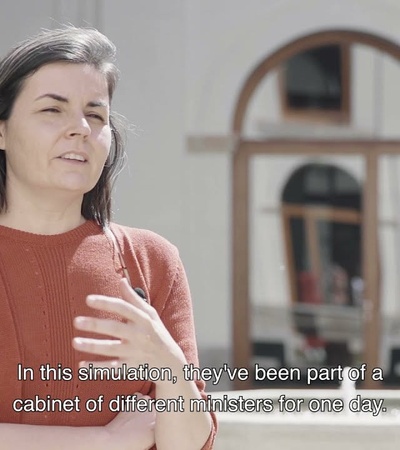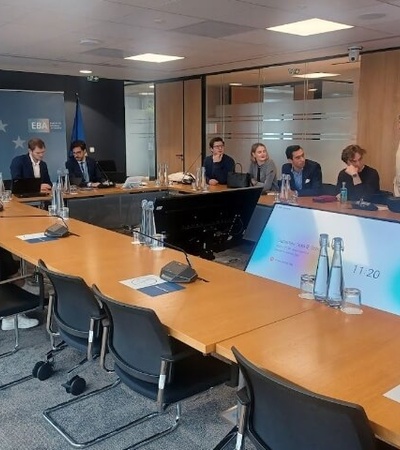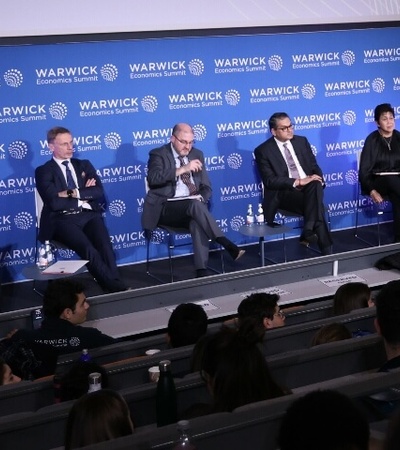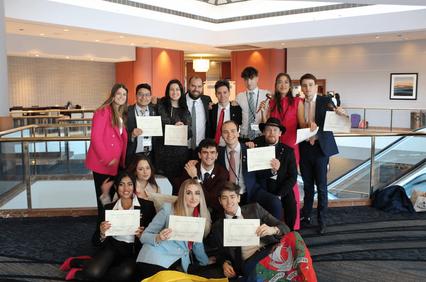Bachelor in Economics
Bachelor in Economics
Drive economic transformation in the digital era
- Home
- Studies
- Undergraduate Degrees
- Bachelor In Economics
YOUR CAREER, OUR PRIORITY
YOUR CAREER, OUR PRIORITY
Our applied and student-centered approach to education helps identify your unique strengths and gives you the chance to forge your own path, with support and academic guidance every step of the way. Immersed in this dynamic environment, you will have access to cutting-edge resources and will be able to customize your program by adding complementary courses, advanced seminars, internships and IEU Labs. Depending on your academic and professional interests, in the fourth year, you can choose from two concentrations: Country, Sector & Policy Analysis, or Economic and Financial Analysis for Business.

WANT TO KNOW MORE?
WANT TO KNOW MORE?
THE EXCHANGE PROGRAM
THE EXCHANGE PROGRAM
Studying abroad is just one of the many ways IE University allows you to discover global perspectives and gain cross-cultural insights. The chance to live and study in another country will open you up to new possibilities, ideas, and worldviews. It’s a life-changing experience that will stay with you long after graduation.
Embark on a global adventure! Click here and find out in which semester you can go on an exchange and start planning your transformative international experience.

A PERSONALIZED STUDY PATH
A PERSONALIZED STUDY PATH
The IE University experience involves much more than academic studies. Our practice-based methodology takes you beyond the classroom walls and straight to the frontlines of the industry you’re passionate about. We offer an exceptional range of opportunities that allow you to tailor your studies to your specific career goals and enhance your employability by obtaining extra qualifications.
PERSONALIZED SUPPORT AND MENTORSHIP
Students receive academic guidance from tutors and advisors who provide direction, encouraging the integration of the different degree elements. Build a personalized academic program that matches your professional aspirations.
IEU LABS
IEU Labs are IE University’s alternative to traditional internships. Designed for first- and second-year students seeking high-level internship placements, the IE Labs provide a hands-on, internship-like, on-campus experience, where you work on projects for leading companies and institutions in a variety of sectors.
HUMANITIES
Holding them as one of its values, IE University understands the Humanities are key to understanding the reality of our world, and applying critical thinking skills to complex, global challenges. Students can select which Humanities course to complete, based on their interests.
ADVANCED SEMINARS
Advanced Seminars complement the core degree by giving students deeper knowledge of subjects in a very diverse area of studies.
INTERNSHIPS
Additionally, students can take part in several internships, gaining professional skills and enhancing that highly valued international profile.
LANGUAGES
Aside from mastering Spanish, our students can decide to study other relevant languages of today’s globalized world, including French, Portuguese, German, Arabic, or Chinese.

STRATEGIC COLLABORATIONS
STRATEGIC COLLABORATIONS
The IE School of Politics, Economics, and Global Affairs has been named a European leadership hub by the Geneva Science and Diplomacy Anticipation (GESDA), connecting science, technology, and policy. As a key center for diplomacy and technology, we will unite European leaders, multilateral organizations, and global experts to shape digital governance through research-driven policies. This partnership gives students unique opportunities to engage with top leaders, attend exclusive events, and influence European digital policy, equipping them with essential skills to lead in a rapidly evolving global landscape.
PROJECTS AND SIMULATIONS
PROJECTS AND SIMULATIONS
Discover how our students bring theory to life through innovative projects and realistic simulations, showcasing their hands-on experience and practical learning approach.
THE NATIONAL BUDGET SIMULATION
Students are expected to design a budget that balances a fictional country’s books and to satisfy all the ministries’ competing needs. Working in teams, students put into practice policies, theories, and variables they had studied throughout the year to produce a viable strategy for economic policy. The exercise is a perfect case of learn by doing.
International Trade Simulation
The International Trade Simulation at IE University offers a dynamic platform for economics students to immerse themselves in real-world scenarios. Designed to be both challenging and enriching, this year the simulation not only evaluates students' understanding of the European Union and its intricacies but also serves as a rigorous training ground for honing negotiation skills. Through hands-on experience, participants gain invaluable insights and techniques essential for navigating the complexities of international trade.
Gamifying Education: Discover the Impact of Sustainability
International Relations and Economics students participate in the "Unplugged" project, where they work in groups over 21 days to reduce CO2 emissions. First-year students can earn special awards for top performance. Aligned with the 2030 Agenda, our program blends theory and practice, using cutting-edge technology to promote responsible consumption and reduce environmental impact. Become a leader in sustainability with us!
Worldwide Study Trips
Worldwide Study Trips
INTERNATIONAL COMPETITIONS
INTERNATIONAL COMPETITIONS
IE MODEL UNITED NATIONS
Check out the annual IE Model United Nations competition that brings students from all over the world to the IE Tower to discuss pressing issues of the global agenda.
TRAVEL ABROAD AND COMPETE
Our Bachelor in Economics students have the opportunity to participate in various international Model United Nations competitions. From Harvard National Model UN to Geneva International Model UN or Rey Juan Carlos University Model UN, our students are encouraged to get involved in these competitions no matter where they are in the world. They can also participate in other competitions such as the Model of Economic Institutions (MEI Madrid).
BACHELOR IN ECONOMICS PROGRAMS
BACHELOR IN ECONOMICS PROGRAMS
BROWN UNIVERSITY PROGRAM
As part of the partnership between IE University and Brown University, students are awarded scholarships to participate in the Brown University Summer Program, held annually at Brown University’s campus in the US. Upon completion of the course, students will receive two certificates: one from IE University and one from Brown University. Students are eligible to receive 3 ECTS credits that can be applied towards their IE University degree.
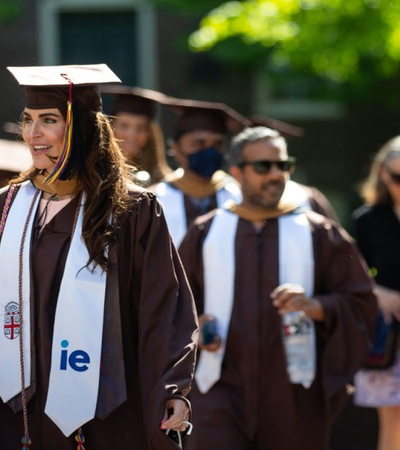
BACHELOR IN ECONOMICS SUMMER PROGRAMS
BACHELOR IN ECONOMICS SUMMER PROGRAMS
United Nations Systems Staff College (UNSSC)
The UNSSC is dedicated to creating a better and more equal world, with the transformative power of learning at its core. IE University students participate in an enriching experience involving real research that makes a real change. Through planning, data collection and analysis, and the opportunity to showcase insightful findings, students are guaranteed a challenging and impactful experience.
Organization for Economic Cooperation and Development (OECD)
The OECD is focused on improving lives by shaping policies that lead to more equality on a global scale. During this project, students develop research methodologies and craft recommendations based on quantitative and qualitative analysis in the areas of either geopolitical risk or ESG reporting.
IFC SUMMER PROGRAM
As a global leader in this mission, the International Finance Corporation (IFC) collaborates with governments and businesses to create economic pathways that drive lasting change. Through this program, students gain firsthand experience in mobilizing capital for sustainable growth in emerging markets.
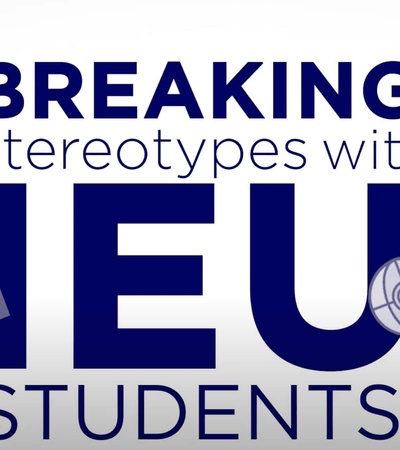
Breaking Stereotypes with IE University | Bachelor in Economics Students
Breaking Stereotypes with IE University | Bachelor in Economics Students
In their shoes
In their shoes

GOING TO IEU PODCAST
GOING TO IEU PODCAST
If you’re curious about what it’s like to study at IE University, tune in on Apple Podcasts, Spotify or other podcast platforms and get listening today.
Frequently Asked Questions
Frequently Asked Questions
What are the students profiles of bachelor in economics?
The Bachelor in Economics at IE University is for individuals who are passionate about analytical thinking and data, and interested in understanding the complexity of the principles that underpin economics in the digital and tech era.
What is an example of exchange in economic activities?
An example of exchange in economic activities is a consumer buying a product from a business in exchange for money. The consumer values the product more than the money they pay for it, while the business values the money more than the product they are selling. This exchange benefits both parties and is a fundamental concept in economics.
Which country is best for bachelors in economics?
There is no single "best" country for pursuing a Bachelor of Economics degree, as different universities and programs can offer different strengths and advantages. Ultimately, the choice of where to pursue a Bachelor of Economics degree will depend on factors such as the individual's interests, career goals, and financial resources, as well as the reputation and resources of the universities and programs available in the desired location.
What is the best way to study for Econ?
The best way to study for Econ (Economics) can vary depending on the individual's learning style and the specific course or material being studied. Through the hands-on teaching methodology at IE University, students from the Bachelor in Economics will find the perfect ideal balance between what is studied throughout their degree and the projects that are applied based on real-world scenarios.
What do most economics graduates do?
Most economics graduates go on to work in a variety of fields, including finance, consulting, government, education, and research. Some common career paths for economics graduates include roles in banking and finance, data analysis, market research, public policy analysis, and teaching. Graduates may also pursue further education, such as a Master's degree or a Ph.D., to deepen their knowledge and skills in economics or related fields.
